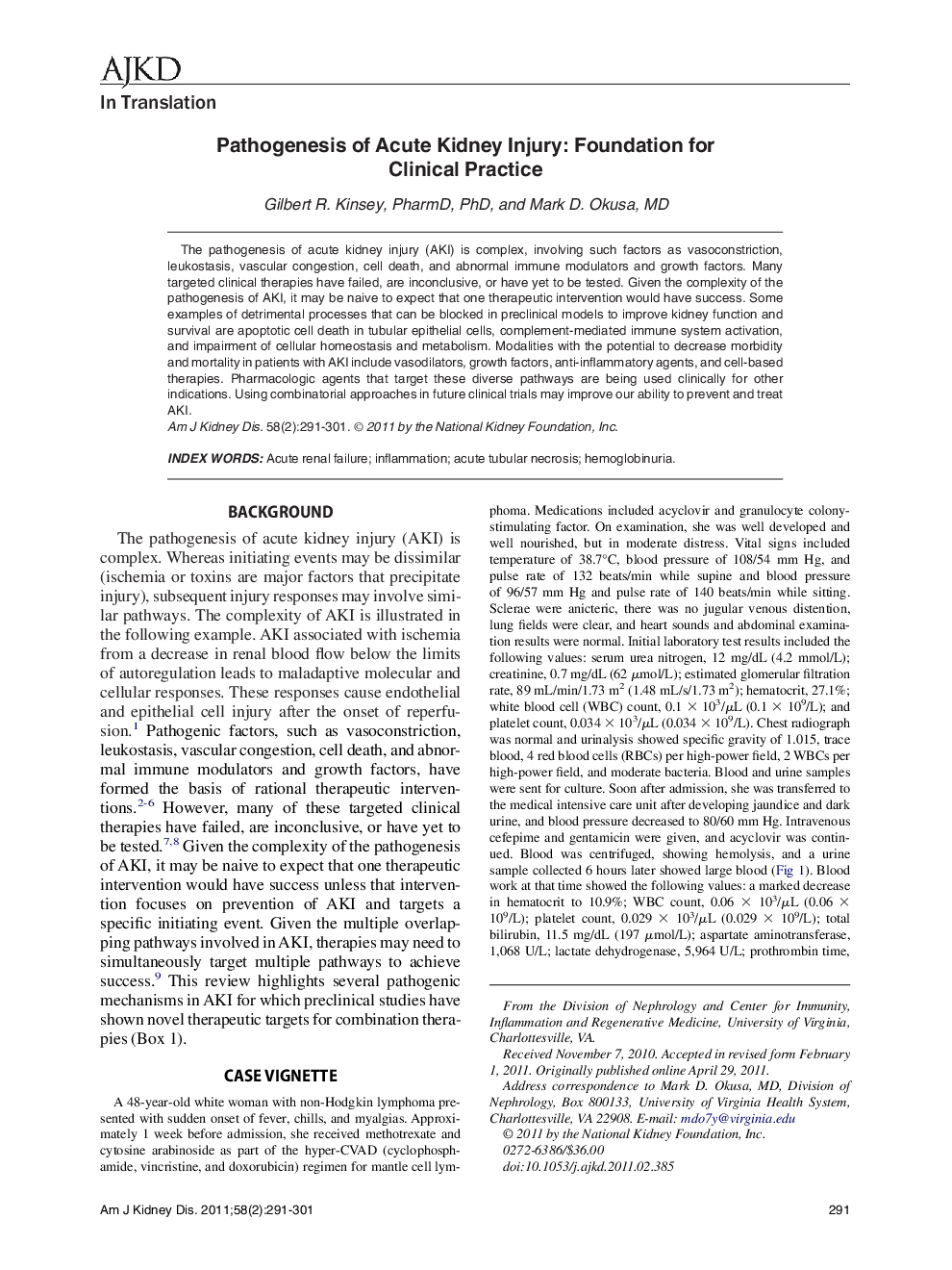| Article ID | Journal | Published Year | Pages | File Type |
|---|---|---|---|---|
| 3849207 | American Journal of Kidney Diseases | 2011 | 11 Pages |
Abstract
The pathogenesis of acute kidney injury (AKI) is complex, involving such factors as vasoconstriction, leukostasis, vascular congestion, cell death, and abnormal immune modulators and growth factors. Many targeted clinical therapies have failed, are inconclusive, or have yet to be tested. Given the complexity of the pathogenesis of AKI, it may be naive to expect that one therapeutic intervention would have success. Some examples of detrimental processes that can be blocked in preclinical models to improve kidney function and survival are apoptotic cell death in tubular epithelial cells, complement-mediated immune system activation, and impairment of cellular homeostasis and metabolism. Modalities with the potential to decrease morbidity and mortality in patients with AKI include vasodilators, growth factors, anti-inflammatory agents, and cell-based therapies. Pharmacologic agents that target these diverse pathways are being used clinically for other indications. Using combinatorial approaches in future clinical trials may improve our ability to prevent and treat AKI.
Related Topics
Health Sciences
Medicine and Dentistry
Nephrology
Authors
Gilbert R. PharmD, PhD, Mark D. MD,
